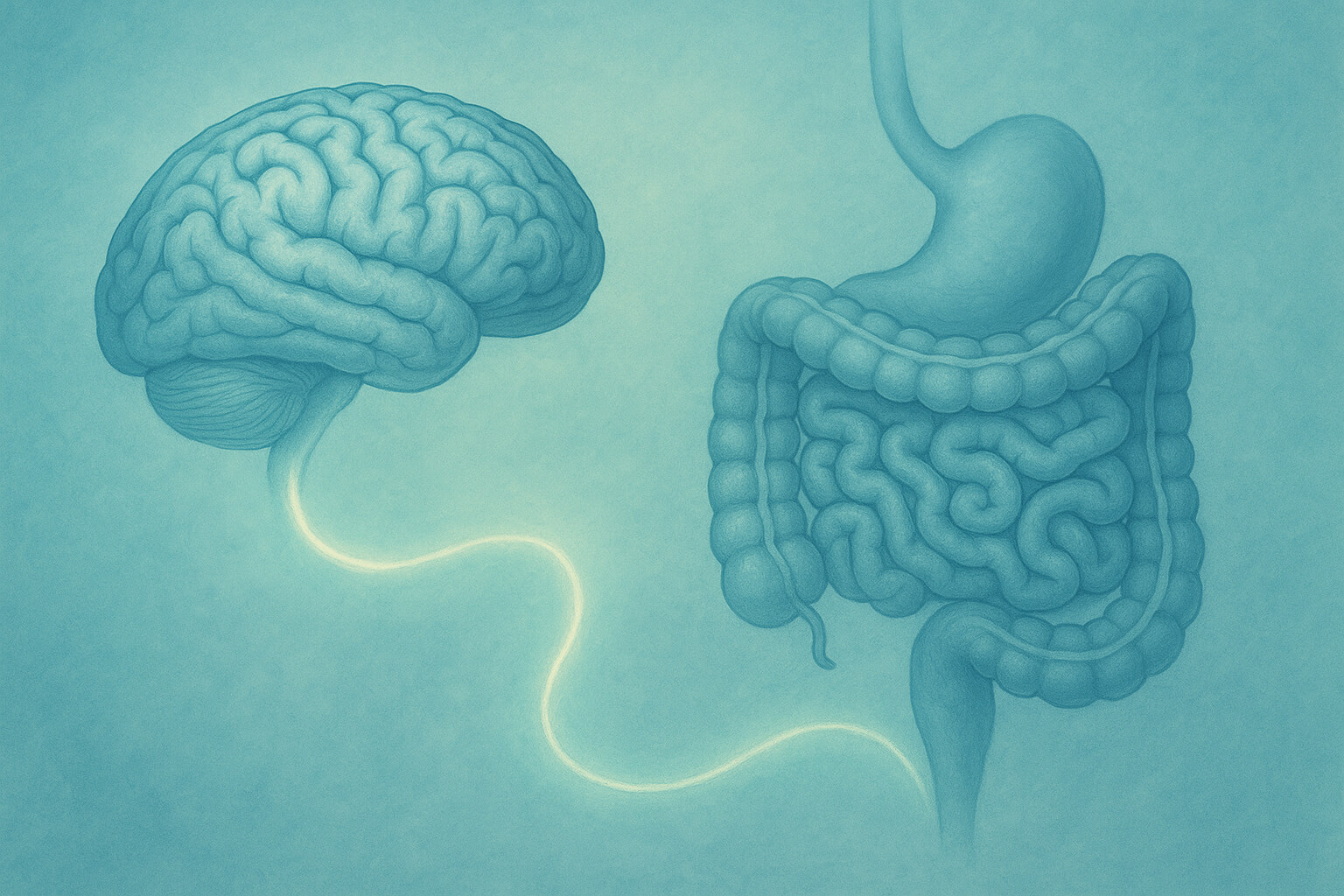September 02, 2025

The phrase “trust your gut” might be more than just a saying. Over the past decade, scientists and health professionals have uncovered fascinating insights into how our digestive system is deeply connected to our brain. This relationship, known as the gut-brain connection, is proving to be a critical factor in physical health, mental wellness, and overall quality of life.
The gut and brain communicate through a complex network known as the gut-brain axis. This system involves several critical components:
This two-way communication means that issues in the gut can affect brain function and vice versa, highlighting the importance of a balanced gut microbiome for both mental and physical well-being.
Research increasingly suggests that an imbalanced gut microbiome may contribute to mental health conditions such as:
Studies published by the National Institutes of Health (NIH) highlight how probiotics and dietary changes can play a key role in improving mental health outcomes.
For a more in-depth look at mental wellness, you can read Understanding Mental Health: Breaking the Stigma.
The food we consume has a direct influence on the bacteria in our gut, which in turn impacts brain health. Certain foods nourish beneficial bacteria, while others may disrupt the delicate balance.
However, diets high in processed foods, sugar, and unhealthy fats can negatively impact gut health, leading to digestive and mental health issues.
For a related read, check out The Link Between Physical and Mental Health, which explores how overall health impacts both physical and mental well-being.
Maintaining a balanced gut-brain connection requires a proactive approach to both diet and lifestyle. Here are some practical steps to nourish both your gut and your mind:
You may also want to explore The Role of Nutrition in Learning and Development, which goes deeper into how diet influences both cognitive and emotional performance.
Understanding the gut-brain axis is more than just a health trend—it represents a profound shift in how we approach overall wellness. Instead of treating the mind and body as separate entities, researchers are now adopting a holistic approach that acknowledges the interconnectedness of physical and mental health. By focusing on nutrition, lifestyle, and stress management, people can support both their gut and brain health simultaneously.
For more information on holistic health practices, read The Power of Community in Health Recovery.
Your gut and brain are in constant communication, influencing each other in ways that are still being discovered. By nurturing one, you support the other—creating a foundation for long-term wellness. Whether it's through diet, stress management, or mindful practices, taking care of your gut can lead to improved mood, better cognitive function, and enhanced overall health.
Stay up to date with the latest tips, expert insights, product reviews, and step-by-step guides to help you grow, create, and succeed—no matter your industry or passion.